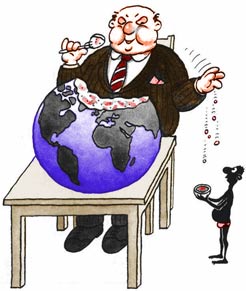[This article applies to S 510 or whatever "food safety" bills they may at the last minute, insert.]
“The vested interests – if we explain the situation by their influence – can only get the public to act as they wish by manipulating public opinion, by playing upon the public’s indifference, confusions, prejudices, pugnacities or fears. And the only way in which the power of the interests can be undermined and their maneuvers defeated is by bringing home to the public its indifference, the absurdity of its prejudices, or the hollowness of its fears; by showing that it is indifferent to dangers where real danger exists; frightened by dangers which are nonexistent.”
– Sir Norman Angell (1872 – 1967)
Introduction
Vested interest groups have orchestrated a legislative lullaby to hush the public’s growing unease with the safety of its food supply. Their enablers in the mainstream corporate controlled media amplify a chorus of government officials and non-governmental organizations admonishing that the public must be confident that the food it buys is safe. But having confidence our food is safe is not the same as having food that is safe and wholesome to eat.
The American public has a great and unmet need to understand the true impacts (that is, the predictable consequences) of the Food Safety Enhancement Act of 2009, before the Senates passes its version of this dangerous bill. The US Congress has a long, tragic history of passing legislation that promotes the industrialization of our food supply, effectively implementing the wishes — both stated and unstated — of agribusiness, and it’s about to do it again.
Using the pretext of food safety, those behind the Food Safety Enhancement Act seek to institute changes the American public would not condone if it understood what is at stake. The country is being duped into believing that the pseudo-scientific measures prescribed by the bill will prevent new outbreaks of food-borne illnesses when in reality FSEA will usher in a number of undesirable outcomes, none of which do a thing to improve food safety. On the contrary, these measures will permit large processors to become an essentially unregulated segment of the industry by privatizing the inspection process, and — at the same time — the new regulations will constitute a cost-prohibitive barrier for small players to remain in business, making them easy targets for indiscriminant enforcement and greater market consolidation.

Hi
ReplyDeleteI like this post very much. It help me to solve some my work under my director’s requirements.
Apart from that, below article also is the same meaning
HACCP standard
Tks again and nice keep posting
Rgs